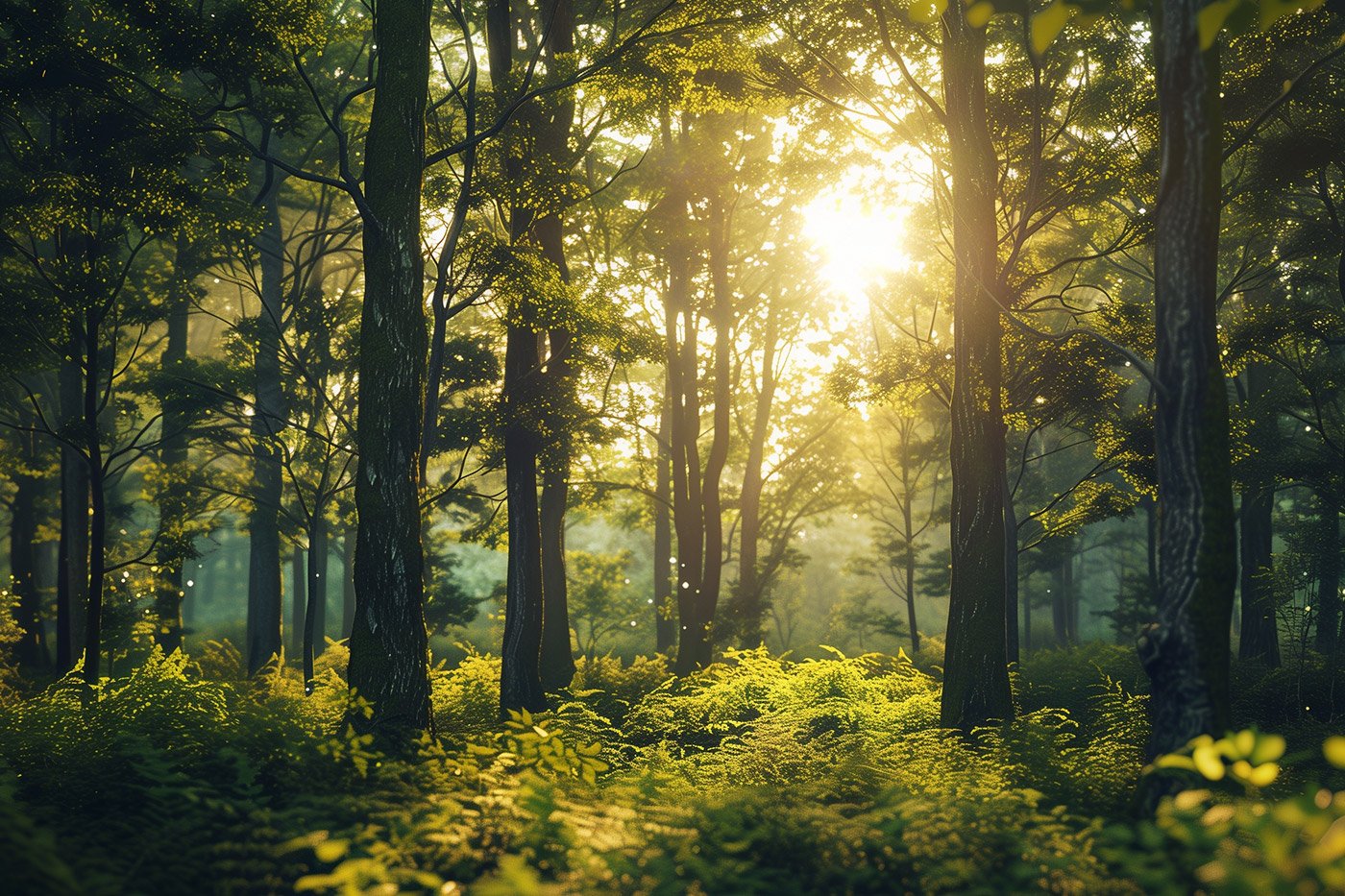When we talk about nature and well-being, one thing becomes clear: being outdoors truly improves your health.
It was a gray morning in Tokyo when Japanese researcher Yoshifumi Miyazaki led a group of volunteers into a nearby forest. They had no specific mission—just to walk slowly, breathe, and be present. At the heart of nature and well-being is a simple truth: being outdoors improves your health, and the results soon proved it. At the end of the experience, tests revealed a significant drop in cortisol, the stress hormone, along with improvements in immune markers. This practice, called Shinrin-yoku—or “forest bathing”—isn’t a mystical ritual but science at work: nature quietly reorganizes our biology in subtle, invisible, and powerful ways.
We live in cities that glow at night as if they’ve forgotten how to sleep. Cars, screens, deadlines, and endless commitments shape our daily landscape. Yet just a walk through a quiet park or the sound of leaves rustling in the wind is enough to spark an immediate shift: deeper breaths, looser shoulders, calmer thoughts. Nature is a kind of emotional architecture that requires no design—only presence.
Science confirms what our bodies already know. A Stanford University study found that walking for just 90 minutes in green spaces reduces activity in brain regions linked to rumination, those repetitive thought loops that fuel anxiety and depression. Another study, published in Environmental Health and Preventive Medicine, showed that spending even a few minutes in natural settings lowers blood pressure and lifts mood. It’s not placebo—it’s physiology. Research keeps proving what the idea of nature and well-being suggests: being outdoors improves your health in ways that can be tracked in both the body and the mind.
Think of nature as an invisible software that recalibrates the nervous system.
Forest sounds, for example, act like an acoustic algorithm: they dampen activity in the amygdala, the brain’s fear center, while activating the prefrontal cortex, the hub of decision-making. It’s as if trees, wind, and water were speaking directly to our inner circuitry, whispering: “You’re safe. You can rest.”
But the impact goes deeper. In 1984, environmental psychologist Roger Ulrich published a landmark study showing that hospital patients with a view of trees recovered faster after surgery than those staring at a brick wall. This simple observation opened an entire field of research into how direct—or even indirect—exposure to greenery accelerates healing. If just looking at nature shifts our physiology, imagine walking barefoot on grass or swimming in a lake.
This effect transcends cultures. In Nordic traditions, there’s the concept of friluftsliv—literally “open-air living”—the practice of seeking well-being through daily contact with nature, even in the cold and dark. For Amazonian Indigenous peoples, the forest has never been mere scenery, but an extension of body and spirit. And in Western literature, writers like Virginia Woolf and Mary Oliver turned to fields, woods, and gardens as endless wells of metaphor for human existence.
Nature also restores something modern life erases: an organic sense of time. In the city, every minute is measured in productivity. But on a trail or an empty beach, time stretches. Watching clouds drift or tides shift reminds us that we belong to rhythms larger than any calendar. Philosopher Henry David Thoreau, who withdrew to Walden Pond, wrote: “I went to the woods because I wished to live deliberately.” Nature pulls us off the clock and back into life’s true tempo.
What’s striking is that this doesn’t require wilderness retreats or long journeys. A University of Exeter study found that spending just 120 minutes a week in nature correlates with higher levels of health and well-being. That can be two one-hour walks in a city park or short breaks under a tree during work. The healing power of nature depends less on intensity than on regularity.
And yet, we face a paradox. While evidence piles up that greenery is vital for balance, urbanization continues to pave over trees with concrete. The result is a “nature deficit” that hits children especially hard, many of whom grow up without outdoor experiences. Author Richard Louv, in his book Last Child in the Woods, coined the phrase “nature-deficit disorder” to describe the physical and emotional toll of this absence. It’s not a medical diagnosis but a potent metaphor: without nature, we become sicker, more anxious, more disconnected from ourselves.
Perhaps the greatest gift of green spaces is this reminder: we’re not separate from the world, but rooted in it. The tree oxygenating the air also steadies our heartbeat. The river flowing silently carries minerals that will one day course through our blood. This isn’t romanticism—it’s intertwined biology.
“If nature is not within us, we are lost in it,” wrote poet Octavio Paz. The forest doesn’t heal us by giving something external; it awakens a forgotten dimension of who we already are. We are organisms designed to live in sync with the green, yet we spend too much time in artificial spaces. Reconnection is not a luxury—it’s a necessity.
The next step isn’t abandoning cities but reimagining them. Green roofs, community gardens, tree-lined streets, balconies with plants—every small act of reconnection restores a piece of balance to our bodies. Well-being isn’t hidden in meditation apps or miracle supplements, but in something as simple as watching a leaf dance in the wind.
Nature heals us because it brings us back to life’s simplicity.
And in that silent act, it shows that caring for ourselves isn’t just individual—it’s collective. Protecting ecosystems is also protecting our health. When we walk beneath the trees, we’re not only relieving stress; we’re remembering we belong to something greater, something that breathes with us.
The real question may not be what nature can do for us, but what we can do to deserve the invisible healing it offers every day. Because at the heart of nature and well-being is a simple truth: being outdoors improves your health while reminding you that you belong to something greater, something that breathes and moves with you.










